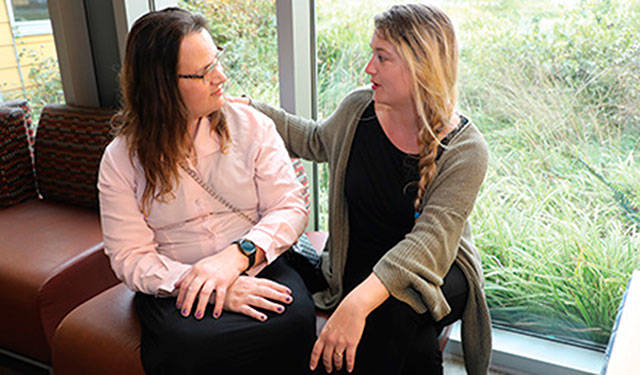The following was written by Johanna Wolf for the Tacoma-Pierce County Health Department blog, ‘Your Reliable Source’:
If you’ve ever moved, you understand the value of relationships. Good friends will pitch in to help you pack up your old place and settle into your new one. They can literally do the heavy lifting to make things easier for you.
For people with chronic diseases, community health workers (CHWs) can offer a similar relationship. These trusted community members pitch in to help people access medical services to be healthier.
In Pierce County, more than half of adults have one or more chronic diseases like diabetes, heart disease, high blood pressure, and cancer. According to the 2017 Pierce County Chronic Disease Report and Action Plan, the county has historically had higher rates of heart disease and diabetes compared to the rest of the state.
WHY CHWS MATTER IN CHRONIC DISEASE PREVENTION
With the right care and behavior changes, people with chronic diseases can improve their health. Many people are not seeing improvements because they can’t get the resources they need. This is where CHWs can make a difference. They use their knowledge and expertise to help people find health and social services to get healthy and stay healthy. CHWs are ideal to:
- Teach classes that involve lifestyle change for chronic diseases.
- Raise awareness about chronic disease risks.
- Connect people to care.
When CHWs promote individual health, they are also supporting the health of our communities. When our communities are healthy, we all benefit.
HOW CHWS HELP YOU
CHWs have an important role in our communities. They help residents navigate sometimes complex systems to reach their full health potential and thrive. They are trusted community members, health educators, peer counselors, and care coordinators. With a network of support, they provide a valuable service to people most in need.
The Health Department supports CHWs and the work they do. Here are some examples:
- Offer training to CHWs.
- Contract with other community organizations for chronic disease prevention work.
- Identify and support training and employment opportunities.
YOU CAN PREVENT CHRONIC DISEASES
Follow these three steps to reduce your risk of chronic disease and live healthier:
- Eat healthy—eat more fruit and vegetables and drink more water.
- Get active—even small increases in light activity can make a difference.
- Go tobacco-free—kick the habit and eliminate exposure to second-hand smoke.
Having trouble getting started? This could be a good opportunity to lean on your friends to help you eat more veggies, go for a walk a few times a week, or quit smoking. Learn more at www.tpchd.org/chronicdiseases.



